How to use GarageBand on Windows 11/10
This article will introduce how to use GarageBand on Windows 11/10. GarageBand is a powerful software application that allows users to easily create music, podcasts, and other audio content. Although GarageBand was originally developed by Apple and is only available for MacOS and iOS devices, users can also use it on Windows operating systems through some alternative methods. There are some third-party software and tools that can help users simulate the functions of GarageBand on Windows, such as using digital audio workstation software similar to GarageBand or a virtual machine to run MacOS. A common method is to use a GarageBand-like digital audio workstation software such as FL Studio, Cakewalk, or Ableton Live. These software provide audio editing and creation tools similar to GarageBand,
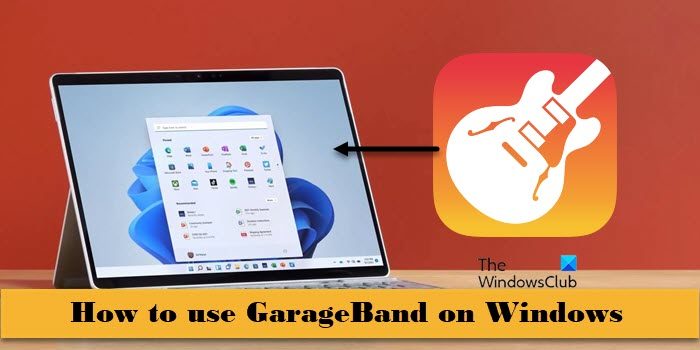
GarageBand is packed with features and tools, making it the first choice for music production. Its built-in virtual instruments, preset loops, strong support network, and tight integration with the Apple ecosystem have further boosted its popularity among musicians, podcasters, and other audio professionals.
Is there a Windows version of GarageBand?
There is currently no official version of GarageBand for Windows, but if you want to use GarageBand on a Windows PC, there is a method you can try. You can run MacOS as a guest operating system on a Windows PC by setting up a virtual machine and use GarageBand in the virtual environment. This way, you can simulate a Mac environment to experience the capabilities of GarageBand, although this approach may involve some technical challenges and configuration adjustments. Virtual machine technology enables you to switch between different operating systems, giving Windows users an alternative way to try GarageBand. Please note that running a virtual machine may have some impact on your computer's performance, so it is recommended to ensure that your system has sufficient resources to support this operation.
How to use GarageBand on Windows 11/10
To use GarageBand on a Windows 11/10 PC, you need to perform the following steps:
Let's look at this in detail.
1]Get the MacOS installation image
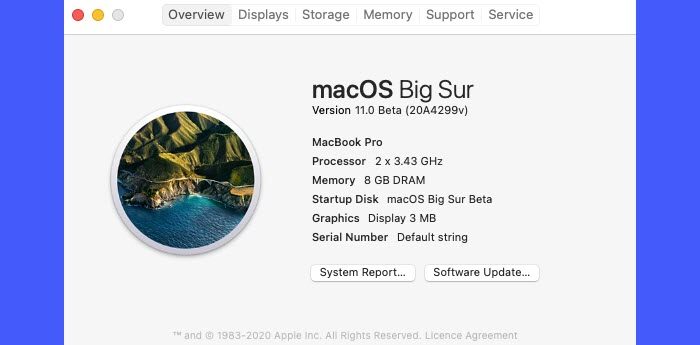
In order to install macOS on a virtual machine, you need to obtain a macOS installation image, which is a macOS ISO file. You can get it by creating an ISO file from an existing macOS installation or downloading the ISO file from the Mac App Store. Please make sure that the source you obtain the ISO file from is legally authorized.
2]Enable virtualization
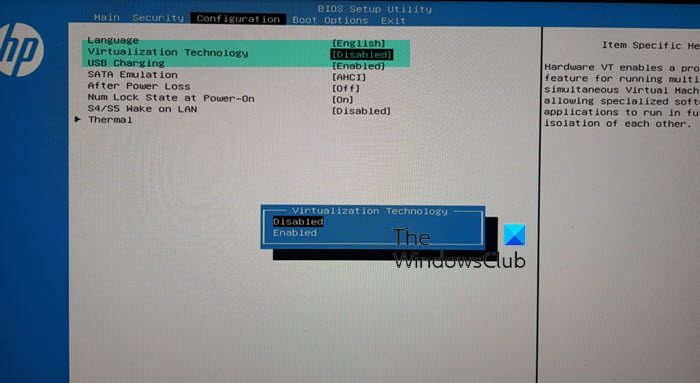
Next, you need to enable virtualization on your Windows PC. For virtual machines to run properly and efficiently, it is critical to enable virtualization.
To enable virtualization, restart your computer and enter BIOS or UEFI settings. Then navigate to the System Configuration/Advanced Settings section. Select the option related to virtualization technology, Intel VT-X (for Intel processors) or AMD-V (for AMD processors). Press Enter, select "Enabled" and press Enter again. Save changes and exit BIOS or UEFI setup.
After this, your computer will restart. Once you reboot, virtualization should be enabled and you can continue using the virtualization software on your Windows 11/10 PC.
3]Install virtualization software
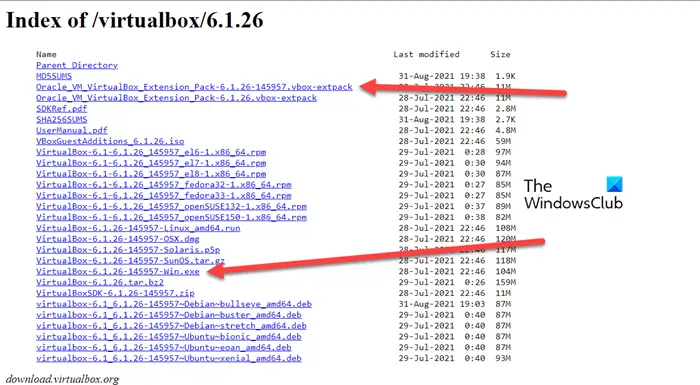
Virtualization software or hypervisor is an application that allows you to create and run virtual instances of multiple operating systems, often called virtual machines (VMs), on a single physical hardware platform. There are several virtualization software available, including VMware Workstation and VirtualBox. You can use VirtualBox to install MacOS and Windows on your computer system.
To install VirtualBox, visit this link and download the following files:
- VirtualBox-6.1.26-145957-Win.exe
- Oracle_VM_VirtualBox_Extension_Pack-6.1.26-145957.vbox-extpack
Now go to your downloads folder and double-click the installer file (VirtualBox-6.1.26-145957-Win.exe). The installer will run. Follow the on-screen instructions to install VirtualBox and then install the extension pack.
4] Set up a virtual machine and install macOS
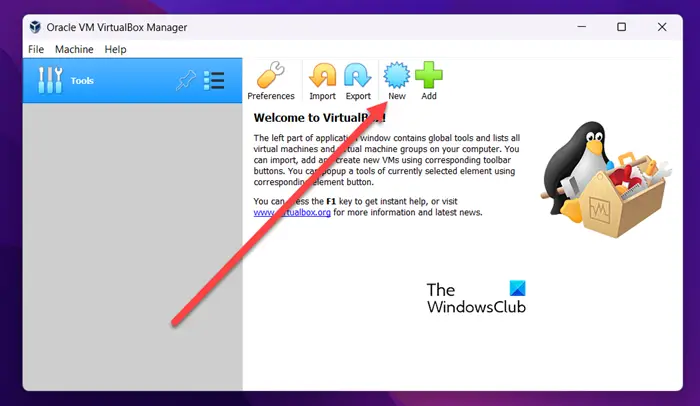
Next, you can use VirtualBox to install MacOS on your Windows PC.
Open VirtualBox and click the New button to create a new virtual machine. Enter the operating system and hard drive file type details in the window that appears. Next, you need to configure the virtual machine settings, including RAM size, number of CPU cores, storage allocation, etc.
After that, the environment for installing MacOS will be created. Select the MacOS VM you created in VirtualBox and click the Start button.
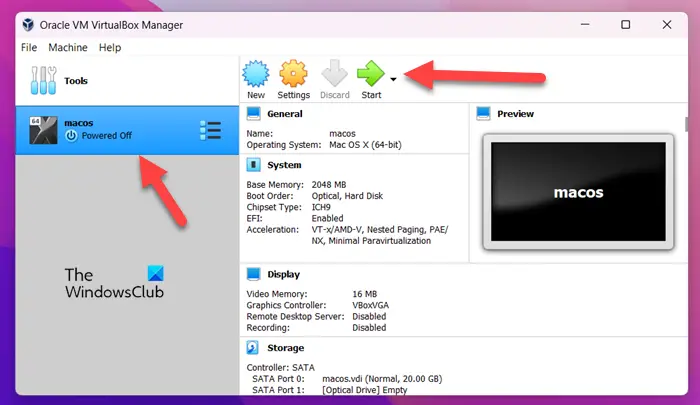
Then follow the on-screen instructions to format the virtual disk, select the MacOS installation image (you already obtained it in step 1), and wait for the installation process to complete.
5]Install and use GarageBand

Now that you have MacOS running on your PC, you can download and install GarageBand from the Mac App Store just like you would on a real Mac.
Open the Mac App Store and enter ‘GarageBand’ in the search bar in the upper right corner. Click the GarageBand icon or its name in the search results. Click the Get button next to the GarageBand icon to start the installation process.
After downloading and installing, you can launch GarageBand in a virtual machine and start creating music!
Please note that GarageBand is a resource-intensive application. When you use it on a Windows 11/10 computer, its performance may not be the best. Alternatively, you can try the free music creation software for Windows, which offers similar functionality to GarageBand, or browse the music creation apps available on the Microsoft Store.
Read: How to use music to create a slideshow on Windows.
Is GarageBand free on PC?
GarageBand is not available for Windows PCs. It is developed by Apple Inc. exclusively for macOS and iOS devices. There isn't a legitimate way to install and use GarageBand on Windows, but several free GarageBand alternatives offer similar features and functionality for music creation. Audacity and Cakewalk are a few popular options.
The above is the detailed content of How to use GarageBand on Windows 11/10. For more information, please follow other related articles on the PHP Chinese website!

Hot AI Tools

Undresser.AI Undress
AI-powered app for creating realistic nude photos

AI Clothes Remover
Online AI tool for removing clothes from photos.

Undress AI Tool
Undress images for free

Clothoff.io
AI clothes remover

Video Face Swap
Swap faces in any video effortlessly with our completely free AI face swap tool!

Hot Article

Hot Tools

Notepad++7.3.1
Easy-to-use and free code editor

SublimeText3 Chinese version
Chinese version, very easy to use

Zend Studio 13.0.1
Powerful PHP integrated development environment

Dreamweaver CS6
Visual web development tools

SublimeText3 Mac version
God-level code editing software (SublimeText3)

Hot Topics
 1387
1387
 52
52
 Can I install mysql on Windows 7
Apr 08, 2025 pm 03:21 PM
Can I install mysql on Windows 7
Apr 08, 2025 pm 03:21 PM
Yes, MySQL can be installed on Windows 7, and although Microsoft has stopped supporting Windows 7, MySQL is still compatible with it. However, the following points should be noted during the installation process: Download the MySQL installer for Windows. Select the appropriate version of MySQL (community or enterprise). Select the appropriate installation directory and character set during the installation process. Set the root user password and keep it properly. Connect to the database for testing. Note the compatibility and security issues on Windows 7, and it is recommended to upgrade to a supported operating system.
 How to speed up the loading speed of PS?
Apr 06, 2025 pm 06:27 PM
How to speed up the loading speed of PS?
Apr 06, 2025 pm 06:27 PM
Solving the problem of slow Photoshop startup requires a multi-pronged approach, including: upgrading hardware (memory, solid-state drive, CPU); uninstalling outdated or incompatible plug-ins; cleaning up system garbage and excessive background programs regularly; closing irrelevant programs with caution; avoiding opening a large number of files during startup.
 How to solve mysql cannot connect to local host
Apr 08, 2025 pm 02:24 PM
How to solve mysql cannot connect to local host
Apr 08, 2025 pm 02:24 PM
The MySQL connection may be due to the following reasons: MySQL service is not started, the firewall intercepts the connection, the port number is incorrect, the user name or password is incorrect, the listening address in my.cnf is improperly configured, etc. The troubleshooting steps include: 1. Check whether the MySQL service is running; 2. Adjust the firewall settings to allow MySQL to listen to port 3306; 3. Confirm that the port number is consistent with the actual port number; 4. Check whether the user name and password are correct; 5. Make sure the bind-address settings in my.cnf are correct.
 How to pull the vertical reference line of PS
Apr 06, 2025 pm 08:18 PM
How to pull the vertical reference line of PS
Apr 06, 2025 pm 08:18 PM
Pull vertical guides in Photoshop: Enable ruler view (View > ruler). Hover the mouse over the vertical edge of the ruler, and then the cursor becomes a vertical line with double arrows and hold and drag the mouse to pull out the reference line. Click Delete by dragging the guide, or hovering it into a cross.
 Solutions to the errors reported by MySQL on a specific system version
Apr 08, 2025 am 11:54 AM
Solutions to the errors reported by MySQL on a specific system version
Apr 08, 2025 am 11:54 AM
The solution to MySQL installation error is: 1. Carefully check the system environment to ensure that the MySQL dependency library requirements are met. Different operating systems and version requirements are different; 2. Carefully read the error message and take corresponding measures according to prompts (such as missing library files or insufficient permissions), such as installing dependencies or using sudo commands; 3. If necessary, try to install the source code and carefully check the compilation log, but this requires a certain amount of Linux knowledge and experience. The key to ultimately solving the problem is to carefully check the system environment and error information, and refer to the official documents.
 Unable to access mysql from terminal
Apr 08, 2025 pm 04:57 PM
Unable to access mysql from terminal
Apr 08, 2025 pm 04:57 PM
Unable to access MySQL from the terminal may be due to: MySQL service not running; connection command error; insufficient permissions; firewall blocks connection; MySQL configuration file error.
 MySQL can't be installed after downloading
Apr 08, 2025 am 11:24 AM
MySQL can't be installed after downloading
Apr 08, 2025 am 11:24 AM
The main reasons for MySQL installation failure are: 1. Permission issues, you need to run as an administrator or use the sudo command; 2. Dependencies are missing, and you need to install relevant development packages; 3. Port conflicts, you need to close the program that occupies port 3306 or modify the configuration file; 4. The installation package is corrupt, you need to download and verify the integrity; 5. The environment variable is incorrectly configured, and the environment variables must be correctly configured according to the operating system. Solve these problems and carefully check each step to successfully install MySQL.
 Is PS slow loading related to other programs that are running?
Apr 06, 2025 pm 06:03 PM
Is PS slow loading related to other programs that are running?
Apr 06, 2025 pm 06:03 PM
The secrets to mastering Office software include: understanding different versions and platforms, correctly installing and configuring, proficient in using the software interface, in-depth understanding of feature operations, application collaboration and sharing functions, utilizing templates and styles, mastering advanced skills, and solving common problems. In addition, you need to choose a version that suits your needs, make good use of templates and styles, develop backup habits, and learn shortcut keys and advanced techniques to improve efficiency.




